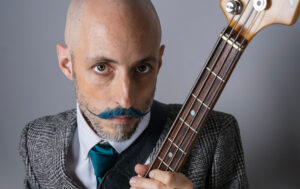Five ways to identify and treat an early addiction

People concerned about someone’s relationship with addictive substances may be unsure how to recognise addiction and if they need support.
Here’s a list of potential indicators and common signs for one to look out for. These will help one to recognise if their loved one is in the early stages of addiction, including what they can do to support their recovery, whether they need a rehabilitation centre and what to do for the best potential outcome.
Health symptoms
A decline in health is often the first major indication that someone is battling substance abuse. Various physical changes can become obvious, such as having bloodshot eyes, dilated pupils and sniffing exaggeratedly. It is also important to look for any unusual markings on their body or an unexpected change in their skin colour – extremely pale or excessively yellow are most common. Shaking and bad breath can also be an indication of alcohol addiction.
Discovering drug paraphernalia and empty bottles
One may come across various objects that are required when taking drugs. Examples of common articles include syringes, lighters, tin foil, rolling papers, razor blades, pipes/bongs and small flat surfaces (such as mirrors or glass). When it comes to alcohol addiction, one may find many empty alcohol bottles hidden around the house.
One may also come across items used to cover up some of the signs of substance abuse, such as eye drops for bloodshot eyes and mouthwash/chewing gum to hide bad breath.
Financial changes
Keeping a constant supply of drugs/alcohol takes substantial funding. Have they been asking to borrow money? Has anyone noticed a change in their spending habits? Has money gone missing? This is a common sign of addiction and suggests that someone would greatly benefit from addiction treatment.
Physical changes
A dramatic appetite change can indicate abuse of drugs or alcohol. They may be excessively eating or replacing food with their choice of substance, leaving them with extreme weight loss or gain.
Someone suffering from addiction can also suffer markings on their body, due to injecting or suffering a reaction. They will likely do their best to hide the obvious physical changes at the start of their addiction, but one may notice them altering their clothing, hygiene and physical appearance as time goes on.
Behavioural changes
Addiction is more than simply abusing a toxic substance; it is often due to an underlying emotional/medical issue, such as depression or anxiety. If left unsupported, this can result in erratic behavioural changes and mood swings, as well as oversleeping or not sleeping enough, due to the lack of control they may feel in their lives. They may also appear reclusive, overly-defensive or as if they are hiding something. Jason Shiers Psychotherapist at UKAT says to “always approach people from a compassionate caring point of view, never one of judgement, in order to really find out what is going on.”
How to help
If someone is exhibiting these signs of addiction, then it could mean they require further help. Substance abuse can be extremely isolating for both the person one is concerned about and their loved ones. It’s important to understand the reasoning behind their substance abuse so one can encourage them to seek support.
It is not uncommon to find the initial process of finding help daunting, but it is crucial to remember there are multiple ways to help them through the process.
Enforce boundaries
One initial step in the recovery process is enforcing new boundaries and not enabling a loved one’s destructive habits.
It is important to remember that boundaries are enforced to protect one and their loved one. This process requires a lot of strength from everyone involved. It gives an opportunity to show one’s support and form a mutual understanding, rather than running the risk of becoming controlling.
Cut off funding
If one has been lending the suspected substance abuser money, paying their bills or letting them live rent-free, one may be unintentionally financially enabling their addiction.
It may seem cruel to cut loved ones off, and one may feel guilty, especially if they give excuses about what the money is for. However, it’s a necessary step for a loved one’s recovery and to let them know these choices will not be supported.
Suggest attending a support group
It is important to remember that the loved one is not alone throughout this process and the help they need is widely accessible. Not only will they receive all the support and encouragement needed to begin treatment, but those affected by the abuser can also receive it. Examples of support groups include Alcoholics Anonymous (AA) and Narcotics Anonymous (NA).
Find a suitable rehab programme
Addiction to drugs or alcohol means that a person cannot stop taking a substance, even when doing them harm. Rehabilitation programmes are a fantastic way to provide the necessary help needed to safely withdraw from the substance and introduce each client to methods of managing cravings in a healthy way.
Not only will treatment centres help one’s loved one physically, but they will also tackle the underlying causes that triggered the addictive behaviours, allowing for positive changes in the future.
Speak to them openly about their options
Let them know that treatment options are either accessed through the NHS or funded privately, so there is an option out there for everyone. For more information on treatment centres, they can ask their GP and research opportunities online – which can be done together. Support groups and aftercare are also provided at rehab centres, ensuring all clients have support to help them maintain recovery and confide in others living through similar experiences. Be sure to remind them that they will always be understood and supported when they decide to reach out for help.
The editorial unit




















Facebook
Twitter
Instagram
YouTube
RSS